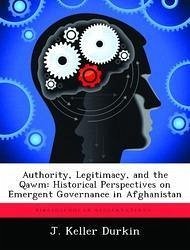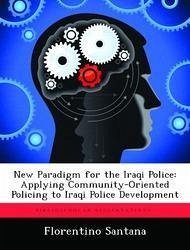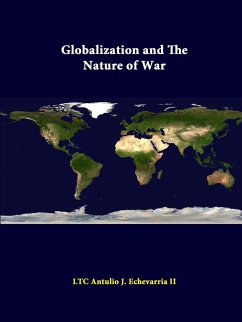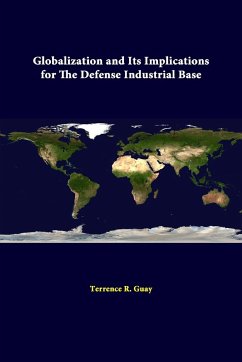Nicht lieferbar
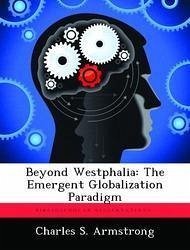
Beyond Westphalia: The Emergent Globalization Paradigm
Versandkostenfrei!
Nicht lieferbar
This monograph analyzes the effects of globalization on the international system as reflected in the changing nature of war. The difficulties that the United States leadership is having with creating and communicating a strategy for the Global War on Terror is indicative of inadequacies within the Westphalian Paradigm for conducting analysis and research of the international system. The driving force behind the shifting paradigm is globalization which is integrating and interconnecting people, thoughts, ideas, and technology around the world despite national boundaries. The United States Milit...
This monograph analyzes the effects of globalization on the international system as reflected in the changing nature of war. The difficulties that the United States leadership is having with creating and communicating a strategy for the Global War on Terror is indicative of inadequacies within the Westphalian Paradigm for conducting analysis and research of the international system. The driving force behind the shifting paradigm is globalization which is integrating and interconnecting people, thoughts, ideas, and technology around the world despite national boundaries. The United States Military's efforts to transform to meet emergent threats continues to use Westphalian Paradigm to conduct analysis and research despite indications that a paradigm shift, fueled by globalization, has occurred. While there are numerous similarities between the Japanese attack of Pearl Harbor in 1941 and the attacks of 11 September 2001, the differences are more critical to understanding the drastic changes that have occurred over the past fifty years. An analysis of the differences between the two attacks highlights the differences between World War II and the Global War on Terror and the changes that globalization has caused on the international system in general. Analyzing the traditional American concept of war shows that three aspects of war have undergone significant changes within the past fifty years. State-on-state war has become the anomaly with United States military forces conducting operations other than war more frequently than they have in the past. Further the rise of non-state actors in the form of terrorists continues to pose an enormous threat to United States interests around the globe. The increase in technology in the form of the internet and satellite news has allowed individuals from all over the world to become more connected, sharing ideas and information at a pace that is unrivaled in history while being able to influence perception and policy of other stat





